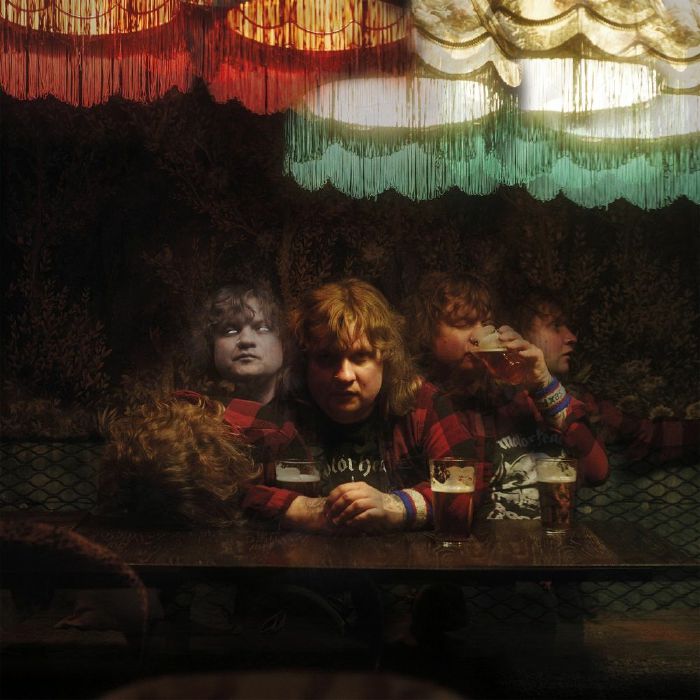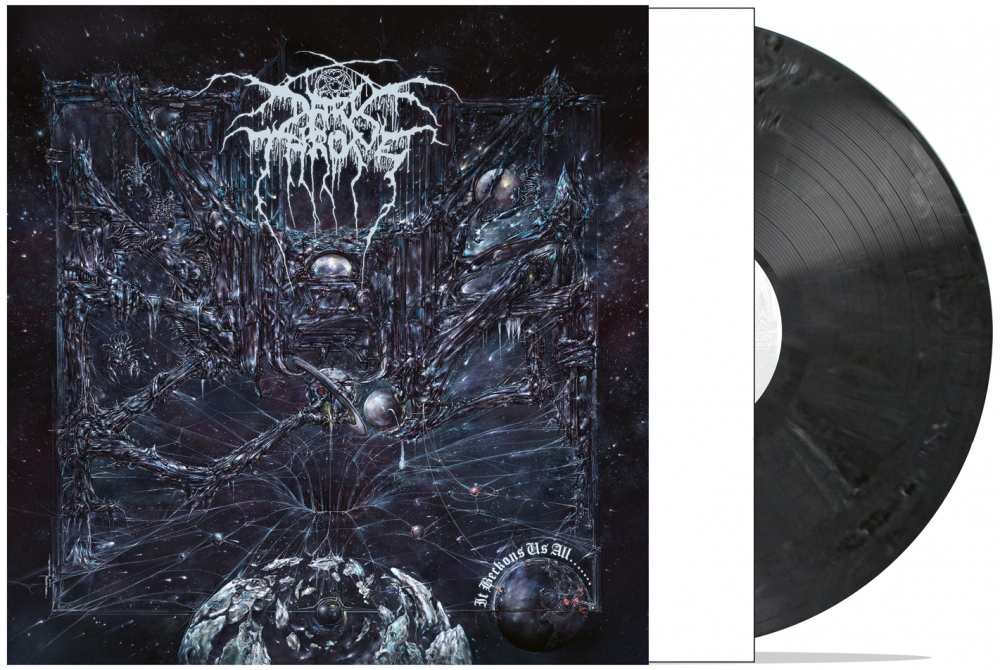The Gathering are rather like the lover that, once they become yours, should never have a past. My first experience of The Gathering was the monumental masterwork ‘Mandylion’, an achingly beautiful record that introduced the world to the exquisite skills of Anneke Van Giersbergen and whilst it was, in point of fact, The Gathering’s third record, I must con fess to not having given its predecessors much thought. This double disc reissue of the first album, however, has provided me with a good idea of what I have been missing; for while the band were still finding their identity on this release, there are still plenty of hints that point towards the direction the band would ultimately take. Moreover, there is an atmosphere of frost that permeates the record, aligning the album more with the similarly unholy work of early Paradise Lost and My Dying Bride, and so it seems entirely apt that the album should now appear on Peaceville, the eternal home of doom.
Like many of the recent Peaceville reissues, ‘Always’ comes packaged here in a card slipcase housing a jewel case. Inside you’ll find two discs, the first of which offers up the original 1992 album whilst the second offers the alternate remix from 1994. There are no bonus tracks available on this release, but the expanded booklet offers full lyrics and liner notes from the band, making this pretty much the definitive edition of the album and a perfect chance for fans such as myself to explore the band’s doomy roots.
Opening with ‘the mirror waters’ the album sets out upon a gloomy path, the guitars a razor-strewn path upon which original vocalist Bart Smits walks with bare and bleeding feet. His catastrophic roar recalls Nick Holmes’ feted performance on ‘gothic’ whilst the music veers between the distressing gloom of My Dying Bride, Paradise Lost and the keyboard antics of Rick Wakeman. It highlights that even at their most brutal, The Gathering always had progressive tendencies leading them to pastures new. ‘Subzero’, with its huge opening riff and furious percussion offset by Frank Boeijen’s Genesis-worshipping keyboard excursions is a crazed hybrid of blackened doom and progressive rock delivered by a band with only the most rudimentary awareness of the crazy new sound they were forging. ‘In sickness and health’ is a gothic slab of awkward synth, grinding guitars, black-hearted lyrics and horror movie atmosphere delivered like Sisters of mercy being brutalised by Vincent Price at a Celtic Frost gig. ‘King for a day’ applies a regal theme to the keyboards and splits its endeavours between searing death metal and ethereal doom, Marieke Groot adding sullen splendour to the already heady mix.
Moving into the second half of the album ‘second sunrise’ is a song that contrasts eerie blasts of toxic doom with rich ethereal passages worthy of Jerry Goldsmith, showcasing just how good the band were in those early days. ‘Stonegarden’ pitches Marike’s vocals to the fore over phased guitars and a somnambulant beat with the metallic elements only slowly rising from the progressive fog whilst the brief, beautiful segue ‘always…’ takes but a moment to drift dreamily into the closing epic, ‘Gaya’s dream’ a song that does much to predict ‘mandylion’ with its stair-stepping guitar work and sylph-like vocals to the fore.
Of the two disks the second offers a cleaner listening experience, which is different but not necessarily better than the chillier original. It is an interesting curiosity, not least because it is broken up into ten, rather than eight, tracks, but for my money the original is a better listen.
As with most Peaceville reissues the emphasis is firmly on presenting the definitive edition of an album that has long been out of print. The absence of bonus tracks may make those who already own the record unwilling to part with further cash, although the ’94 mix may prove to be a tempting incentive, but for those who missed out first time round this is an irresistible opportunity to explore the past of one of metal’s most enigmatic bands. The well-written liner notes help to place the record in its historical context and the music itself, whilst raw and far doomier than later efforts, offers plenty of hints that show that even in those early days The Gathering knew where they were headed.










Leave a Reply